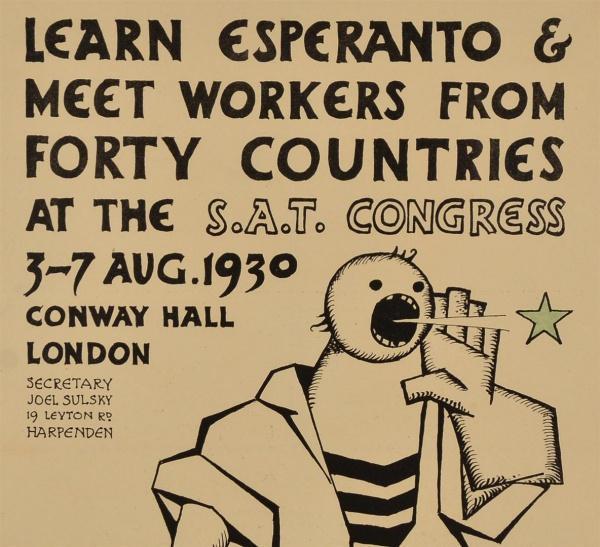Learn Esperanto and open up opportunities for trade, says Sinjoro Eng.
I did not know how many hours a lawyer needs to prepare in order to defend a case; according to various Hong Kong drama series, s/he usually has to read into the wee hours of night.
I was dismayed when I read about the Federation of Malaysian Manufacturers (FMM) urging the government to make English language a compulsory pass by 2018 but then the Minister of Education delightedly brought forward to 2016.
To re-train the 62,000 teachers of English who are not proficient in the English language, it would cost millions of ringgit, but to retrain these teachers to teach Esperanto you would need less than a million ringgit.
Esperanto requires 150 hours of learning and there are many ready-made programs which are free of charge for users, like the Lernu site which has more than 40 languages at the moment or by downloading them from the Brazil site.
Nine decades ago, research in France showed that Esperanto is the best language for business. But the French government did not approve it as the person in charge thought the French language would rule the world forever.
I just wish FMM could take a few minutes to read the New York Times report to understand the benefits of Esperanto in the commercial sector.
Do you need to talk to the factory workers in English, FMM?
I doubt it. The blue collar workers would be unable to understand your English too. But they can understand you well after the 150 hours of training in Esperanto, perhaps, maybe even sooner if they are hard working enough.
Your organisation should promote the use of Esperanto to avoid more legal cases in which ambiguous sentences brought in.
The use of Esperanto would also provide the opportunity for small and medium industries to reduce the cost of translation and hiring translators to attend business negotiations.
Time is money, isn’t it? Negotiations could probably take up as little as 15 minutes, but with translators needed to convey the message, it might take more than 40 minutes. I have had that experience.
If FMM were to conduct research to study the viability of this idea, they might find results similar to when Europeans would ask for the legal right of usage of Esperanto, which is recommended by UNESCO. The Esperanto International Economic and Trade ( IKEF ) is on the rise especially in Latin America.
Look forward for the change, as the usage of English is declining and more people in the world are unable to use English as there is no such environment required.
Do read my previous articles if you need information about how widely Esperanto can be used. I could tell you more in the coming article about the Medical and Science in Esperanto.
*Below is a reproduced article from the New York Times describing a French study on the usage of Esperanto from 90 years ago:
Paris business men would use Esperanto
Chamber of Commerce Committee finds it useful as a code in international trade
The New York Times; Published: February 16, 1921
Paris, Feb, 15– The Paris Chamber of Commerce has taken the initiative in instituting Esperanto classes in all their commercial schools so that students can learn for commercial purposes an auxiliary international language. Before taking this step the chamber appointed a committee to to inquire into the real usefulness of Esperanto, and among other tests they made was to translate a large number of business letters into Esperanto and back into French. It was found that the sense of the letter was no way lost.
The committee recommended that Chambers of Commerce in other countries should be asked to institute similar classes in the language invented by Dr Zamenhof, which they are convinced will enable international business to be carried on without error and with much greater dispatch and cheapness than when translators into half a dozen languages have to be employed. The ease with which Esperanto can be learned and its accuracy in translation were regarded as its two principal recommendations above other artificial languages. For business purposes, it is regarded by far the clearest and richest in expression and easy to translate.
Some of the texts submitted to the test were such that the slightest mistake would completely change the meaning, but Esperanto was found to meet all the requirements. M. Andre Baudet, Chairman of the committee on whose recommendation it was decided to open the classes, describes Esperanto as rather an international code than as a language.
‘It won’t revolutionize the world,’ he said, ‘and there is no likelihood that it will take the place of any language, but, just like a telegraphic code or a system of stenography, it can be useful to every people and aid enormously in international business.’
Featured image from eBay.


Workers are the central part of the business and they were working as the backbone for the production. So there should be some bounce for them and awarded should be given to boost their courage toward the work as due to these they will show their more affection for the work.
Please look at this page:
20 Reasons to Learn and Use Esperanto:
http://esperantofre.com/faktoj/